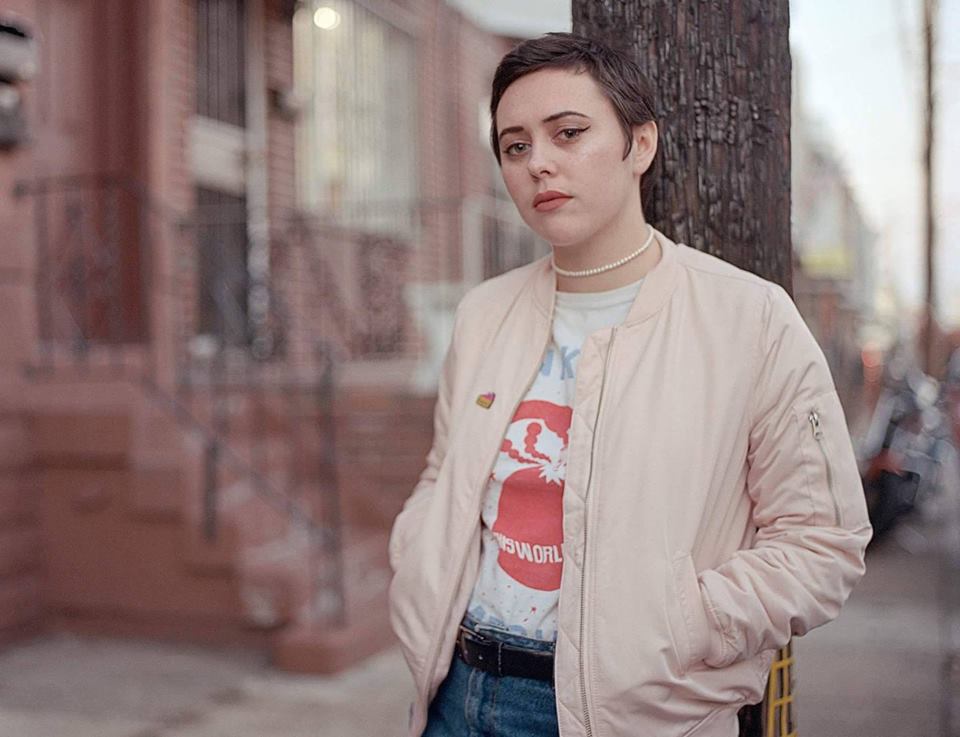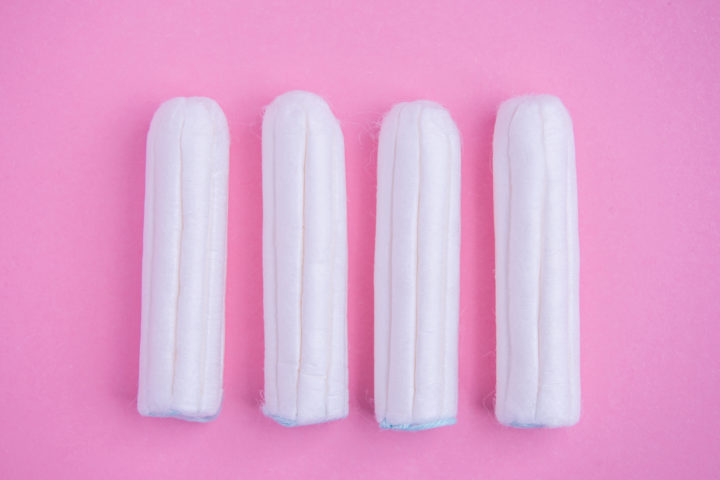In a world that’s often so incredibly unforgiving to trans bipolar kids like me, Lora Mathis has been a warm and rosy light in such a dark place.
Because it was through the messages in their art, their insistence that “radical softness” can be used as a weapon, that I learned to embrace my numerous emotional vulnerabilities as valid, productive, and allowed to take space in my body without necessarily tormenting me. After all, art and artists existing to promote radical self acceptance is not incredibly common. That’s why I treasure my Mathis prints, and rock my “radical softness as a weapon” tee when I need strength.
Between their art, their poetry, and their messages via social media, Mathis remains a positive role model in the mentally ill, femme and queer communities while grappling with their own intersecting identity. Even as they come to understand their own trans identity and cope with healing from traumatic situations, Mathis generously breathe life into their art and their brand every day to inspire others going through the same.
Recently, I got a chance to chat with Mathis about what “radical softness” means to them, the challenges of fighting mental health stigma in their own life, and their new poetry collection coming out soon.
This conversation has been edited for clarity.
HelloFlo: How was “Radical Softness” born?
Lora Mathis: I created the initial photo saying “radical softness as a weapon” last year, and then began making more images with text as they popped into my head. The series was heavily linked to my healing process. The phrases in it were direct replies to combat things my head was telling me. I view the series as a refutal of my inner monologue.
Also, at the time I was familiarizing myself with some artists in Montreal, as introduced to me online by my friend, feminist graffiti artist Starchild Stela. The work amongst their scene was focused on emotions, queerness, and femininity. Many of the artist’s work focused on toughness & tenderness, and deeply inspired me.
HF: How does this concept inform your art and poetry?
LM: Tenderness and vulnerability have always been driving forces in my work. In creating work, no matter [the] medium, it’s always been my intention to be as honest as I can be. My creative mentality essentially is: Rip yourself open. Repeatedly.
Being more upfront about embracing emotionality has allowed me to be more intentional in my other work. My poetry has definitely become increasingly honest.
HF: I personally love your work and the concept of radical softness because it helps me battle the stigma of mental illness in my own life. And I’m so happy to have seen a bunch of folks with your work, in your shirts, and even getting your words tattooed onto them. How do you hope that your work impacts your followers?
LM: Thank you so much! It means the world to me to know others are impacted by such personal work. When I created it, I joked with myself that I hoped it would start a movement. I never expected people to respond to the work in the way they did. It’s unbelievable to see people with tattoos of the phrase.
My hope for my work is that it provides some comfort to people and causes them to reflect.
HF: What parts of your life or identity were you afraid to be vulnerable or soft with in the past?
LM: I’m still so terrified of being honest about mental illness and trauma. This work, which at its core is about erasing stigma surrounding mental illness, is not something I am done learning. I am not in a post-healing state. I’m constantly reminding myself to forgive my head, to not shame myself to falling back into toxic thought patterns, to not feel completely defeated for having to relearn familiar ideas. Softness to me is a continual process. I do not think it will ever end. Some days it feels impossible and too exhausting to keep up. Other days I remind myself to keep pushing through, to keep doing the hard personal work. I keep repeating these ideas of embracing my emotions to make them louder than learned stigma.
HF: Is radical softness for everyone? Why or why not?
LM: That doesn’t feel fair for me to determine. I can’t speak for everyone. I am a white, cis-passing (I hate this idea but because I am not out to many people, my transness does not negatively affect my day to day life), and from an upper middle class background. I have so many privileges that shape my perspective and experiences. I have been critiqued for this work and been told that it comes from a place of white privilege. And that’s absolutely true. I am white, with white privilege, and this (despite my attempts to constantly undo it) influences my work. As far as I am aware, my work has been expanded upon by POC-Sarah Bruno and Busra Erkara—who have focused on it as it applies to POC.
While I do not seek to alienate anyone with my work, it is highly personal work. The main reason I created the radical softness series was to process my own mental illness and trauma. Now, as it had received attention, I do believe it is imperative to expand upon the work. I am consistently mulling over my intentions and wording.
HF: How does softness empower you?
LM: Softness is embracing my voice. It is regaining it after trauma. It allows me to work past shame (although, god, I have so much), and to be comfortable and accepting of myself. I have always been soft, emotional, and sensitive. But I have not always accepted it.
HF: What’s next for you over the next year? I remember reading something about another book!
LM: Yes! I’m going to be self-publishing my second collection, “instinct to ruin.” It dives pretty deep into mental illness and feels like a fuller collection than my first book. I’ve also been working on a series of film stills which I want to bond together to make a dreamy, thoughtful book. But mostly I’m focusing on getting other areas of my life together. I moved across the country a few months ago, and am in a comfortable living situation for the first time in my life. I haven’t been creating as much, but I’m happy to be stable! I don’t doubt that the work will come.
Check out Mathis’s last book, The Women Widowed To Themselves, as well as their Etsy store for Radical Softness prints (and other stuff).




comments